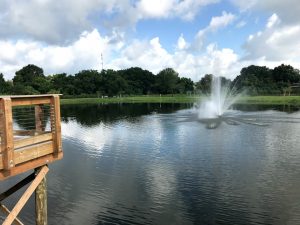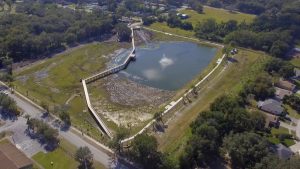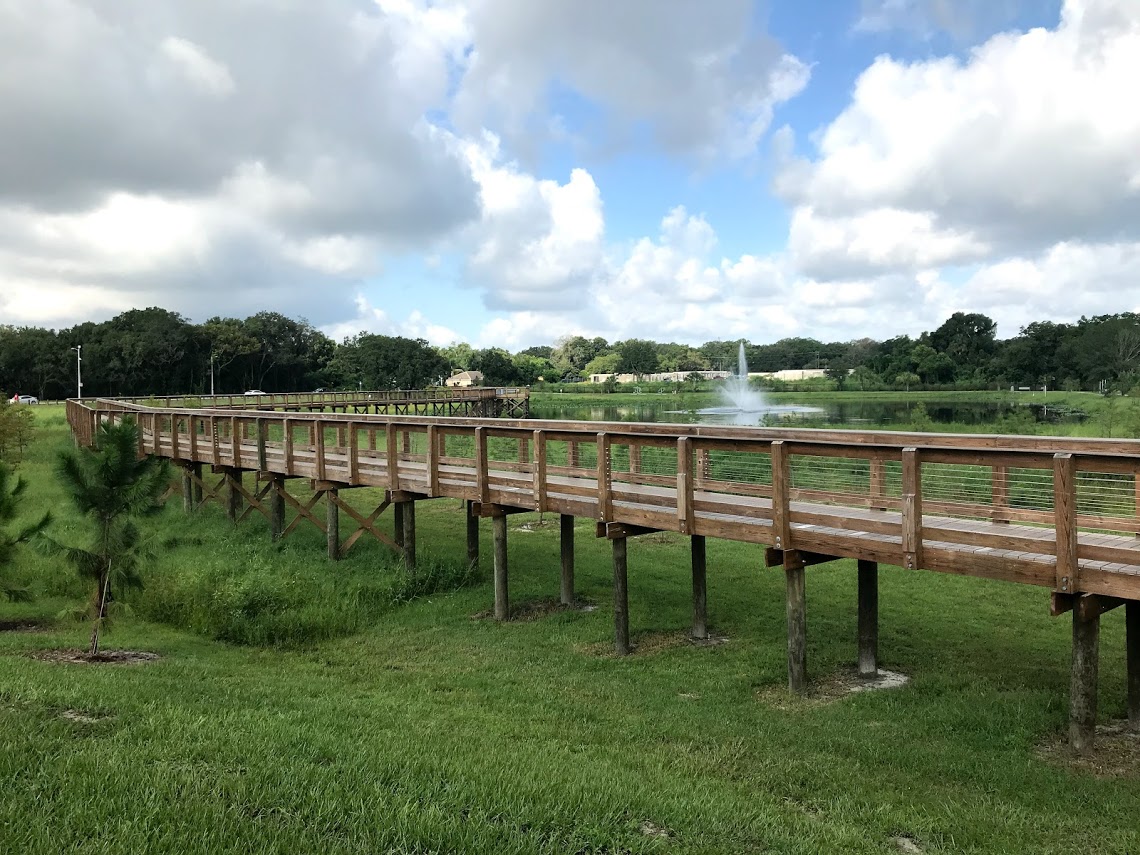Like many stormwater ponds in crowded urban neighborhoods, the Lucy Dell Community Pond once attracted more litter and trash than it did people and wildlife. But that was before an award-winning makeover by the Hillsborough County Parks and Recreation Department transformed it into an 8.5-acre neighborhood park.
The $3.5 million project helped the parks department win an excellence award in the community building category from the Florida Recreation and Parks Association. “It’s not a pond, it’s an oasis,” says Herbert Kinsey, president of the Lucy Dell Community Association when the renovated park opened last year.
The renovation highlights the parks department’s focus on combining enhanced neighborhood parks with stormwater improvements, said Greg Brown, parks services manager. “We’re not monitoring water quality, but we cleaned out 30 truckloads of trash from the pond and planted tons of trees on the site,”
A shallow area known as a littoral shelf was built along the shoreline with native plants like pickerelweed and arrowhead to filter stormwater entering the pond and provide habitat for birds and small fish.

Photos courtesy Hillsborough County
Stormwater, now the single-most-important contaminant in Tampa Bay, is rainwater that flows over lawns, driveways and parking lots, picking up fertilizers, oil, chemicals, grass clippings, litter, pet waste, and whatever else is in its path. While Lucy Dell is a small community of just 25 homes in east Tampa, the pond collects stormwater from a much larger watershed — about 500 acres with more than 75,000 residents — so pollutants had been concentrated it.
“Before the renovation, the whole area was fenced off so no one could use it, and so it became an illegal dumping ground,” adds Dana McDonald, senior project manager. “We were working with community leaders because there was clearly a problem and we wanted to provide a solution.”
The park’s opening attracted residents from across the community, including a baby alligator that showed up for the ceremony, MacDonald said. “This is the perfect place to exercise outdoors with fitness equipment, lighted boardwalks and walking trails.”
It has also improved water quality in the region because illegal dumping is now more visible and neighborhood residents are committed to keeping their pond clean and beautiful. “We have had some important teaching moments about littering and people understand that what they do in their neighborhoods impacts their pond,” MacDonald said.
“We have one gentleman who reports back to us if there is anything going on, and many of the people who use the park are doing trash pickups daily,” she adds. “People love having it in their neighborhood because it’s a beautiful park and not an eyesore anymore.”
Learn more: With the One Water plan expected to be approved by the county, more urban stormwater systems may be transformed into community amenities like the Lucy Dell Pond and Delaney Creek.
